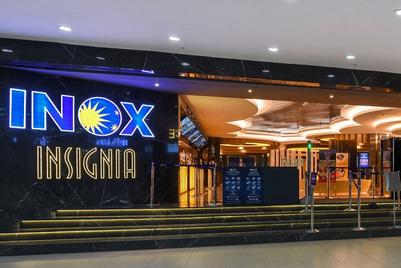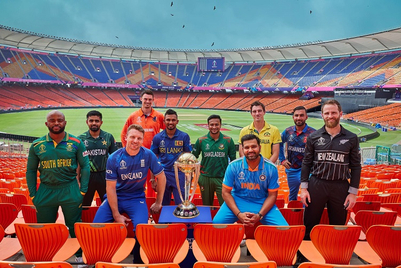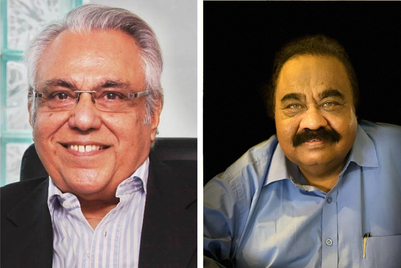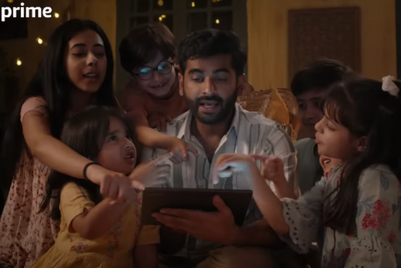Covid has triggered what digital OTTs may not have been able to otherwise do in a decade, or more. It has changed the course of the entertainment business, once and for all.
Shoojit Sircar’s Amitabh Bachchan-Ayushmann Khurana starrer Gulabo Sitabo will become the first major new Bollywood movie to opt for a digital release, in the shadow of the Covid pandemic.
Direct-to-home video streaming service Amazon Prime announced yesterday, Thursday, that the new movie will premiere on its platform on 12 June 2020, opening to viewers in 200 countries, and an audience of 150 million subscribers. The movie was slotted for a 17 April theatrical release but the lockdown across the country, and the shuttered theatres and multiplexes prevented the planned premiere. The movie is a Rising Sun Films production, written by Vicky Donor writer Juhi Chaturvedi, and produced by Ronnie Lahiri and Sheel Kumar.
Readers will recall that Homi Adjania’s Irrfan Khan starrer Angrezi Medium was the last major Bollywood to be screened in theatres before the lockdown got enforced and all out-of-home entertainment came to a screeching standstill.
The
Gulabo Sitabo premiere on Amazon Prime could fundamentally re-draw, and re-define, the contours of the entertainment business. Inox Leisure,
India’s second largest multiplex chain, reacted with comments of “extreme displeasure” and “disappointment”, adding phrases like “alarming” and “disconcerting” to their statement to describe Sircar’s breaking of ranks. But the immediate, and long term repercussions could be even worse than the Inox reaction. Bollywood is already in serious doldrums because of the nation-wide shutdown, with big movies like the Akshay Kumar starrer
Laxmmi Bomb (slated for theatrical release on 22 May) also getting the heebie jeebies. Rohit Shetty’s
Sooryavanshi and Kabir Khan’s
’83 are also almost ready for release, and will have to make the tough choice between taking the
Gulabo Sitabo route of a video streaming premiere versus sweating it out till theatres re-open, which currently looks like a dismal, far-off reality.
The Gulabo Sitabo ‘betrayal’ in a way breaks the time-honoured practice in the Indian film industry that movies screened in theatres do not head to television (or video streaming) for atleast eight weeks post premiere, giving the theatres enough of a time window to monetise the release. With one major release premiering minus the theatres, that too with the likes of thespian Amitabh Bachchan and current flavourite Ayushmann Khurana as the star cast, a precedent has been created, which many other producers, especially with stressed and stretched finances may opt for, given the uncertain circumstances around the continuing pandemic. Industry gossip has it that Laxmmi Bomb too was in advanced talks with Disney+Hotstar but the deal did not somehow fructify.
Is this the beginning of the end for cinema as we know it? The slow death of the big screen, the deafening Dolby, the Eastman Color experiences? Or is that too much of an exaggeration? Okay, then, is it the beginning of the end for theatres and multi-plexes? With the current pall of gloom surrounding the entertainment industry, all prophecies could well be valid, in full or in part. No one can really say. The circumstances today are extremely negative.
- Theatres will be amongst the last to open because of the Govt’s fear of allowing too many people into too small an enclosed space. The earliest could be August. But it could well be later. The metros, the biggest multiplex markets are all red zones. Their return to normalcy could be even further delayed.
- Even when theatres open, social distancing norms will ensure every one seat in two is kept empty, seriously impacting BO collections.
- Cinema goers themselves may exercise restraint. Prefer to avoid cinemas till the pandemic abates. That will lead to low demand and sparse attendance.
- Gulabo Sitabo will be able to be viewed by Amazon subscribers for free … that is no additional pay-out for the movie premiere. To most subscribers that would seem very very attractive. A bonanza of sorts. This would surely be a substantial saving for an average middle class family which spends atleast Rs. 2,000 for a family of four for a multiplex outing, and actually 50 per cent more on a weekend.
- Older members of the family too can watch the streaming movies at home without stirring out – a major concern today.
Apart from the Shoojit Sircar film, Amazon Prime is also said to have acquired rights of Jyothika-starrer Tamil legal drama Ponmagal Vandhal, two Kannada titles – French Biryani and Law, Malayalam film Sufiyum Sujathayum, and Penguin (Tamil and Telugu). Add to that Anu Menon’s Vidya Balan starrer Shakuntala Devi: Human Computer in Hindi, which too most likely has been pocketed by Amazon Prime. Industry sources also say that Anurag Kashyap’s Nawazuddin Siddiqui starrer Ghoomketu, delayed from a November 2018 theatre debut, is also headed to a digital streaming, in all likelihood on Zee5. The film may air as early as 22 May. If all of this is indeed true, then the future for theatres and multiplexes is indeed grim. Increasing number of producers may ‘defect’, leaving exhibitors with reduced options and troubled margins.
I have written in the past on the looming threat to the multiplex business from Jio Fiber’s aggressive acquisition of subscribers, purely with the intent of cannibalizing cinema viewers and creating every-Friday home premiers. The Amazon Prime grand hurrah with Gulabo Sitabo will certainly be a shot in the arm for Reliance too. They will be emboldened to more aggressively woo producers … and they have deep pockets too. Bollywood is an industry with low cash reservoirs and very few producers have the capacity to hold ready inventory for too long. So the temptation to succumb to a Reliance/Amazon’s ready-cash-cost-plus deal would be attractive to many small studios and independents.
There is another interesting debate that the move of Gulabo Sitabo to video-streaming will surely ignite – that of midgetising our big-screen superstars and reducing them to small screen play. Hence undermining and diminishing substantially their celebrity status. But I will cover that possibility in another blog soon!
Dr. Sandeep Goyal is a former Group CEO of Zee Telefilms.




.jpg&h=334&w=500&q=100&v=20250320&c=1)

.jpg&h=334&w=500&q=100&v=20250320&c=1)


.jpg&h=334&w=500&q=100&v=20250320&c=1)


.jpg&h=334&w=500&q=100&v=20250320&c=1)









